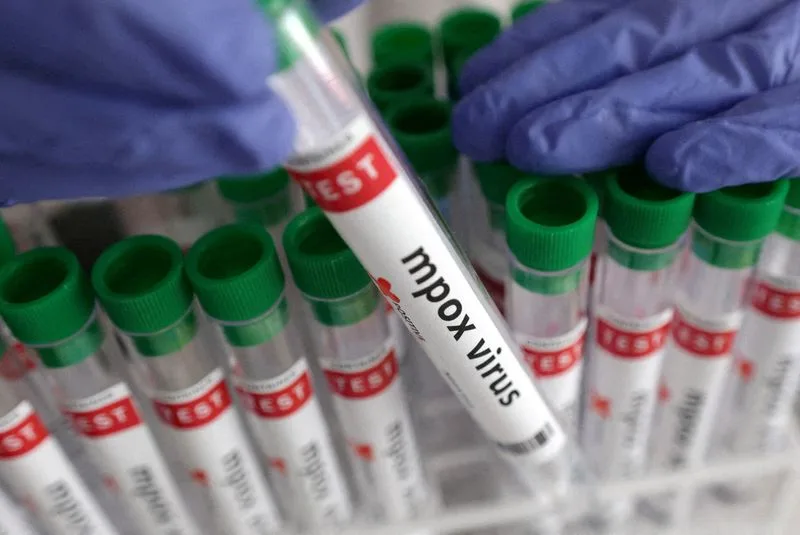Mpox Case: India has confirmed a new case of mpox (formerly known as monkeypox) in a traveler returning from an affected country, raising concerns about the potential for further spread. This marks the latest instance of the global resurgence of the virus, which has been identified in various parts of the world over the past few years. Health authorities are closely monitoring the situation as they work to mitigate the risk of additional cases.
Details of the Case
The infected individual, whose identity remains undisclosed for privacy reasons, was screened upon arrival in India after displaying symptoms consistent with mpox, including fever, rash, and swollen lymph nodes. The traveler had returned from a country that has been battling a rise in mpox cases. The patient was immediately placed under quarantine to prevent further transmission.
Indian health officials have responded swiftly, carrying out contact tracing for anyone who may have come into close contact with the infected traveler. Those identified are being monitored for symptoms, and any necessary testing or isolation protocols are being implemented.
Mpox: A Global Concern
Mpox is a viral zoonotic disease that was first discovered in 1958 in monkeys, hence its original name. However, the virus can also infect humans and is transmitted through close physical contact, including direct contact with skin lesions, bodily fluids, and respiratory droplets. Human-to-human transmission has been a key factor in the recent outbreaks.
The current resurgence of mpox, particularly in countries with no prior history of the disease, has raised alarms within the global health community. International travel has been cited as a significant factor in the spread of mpox, and health officials worldwide are advising travelers to remain vigilant and report any symptoms early.
India’s Response to Mpox
India has been proactive in addressing the potential spread of mpox since the virus began to resurface globally. The Ministry of Health and Family Welfare has issued guidelines to states and healthcare facilities, emphasizing the importance of early detection and containment.
Dr. Rajesh Bhushan, the Health Secretary, noted, “Our focus is on containment and ensuring that the virus does not spread locally. We are working closely with global health authorities and ensuring that all protocols are followed.” The government has also increased surveillance at major international airports and is screening travelers arriving from high-risk countries.
India’s robust healthcare infrastructure, built from years of battling diseases like COVID-19, dengue, and other viral infections, is well-equipped to handle the containment of mpox. However, health experts warn that the public must continue to take precautions, including practicing good hygiene and reporting symptoms early.
Symptoms and Treatment
Mpox symptoms typically begin with fever, headaches, muscle aches, and fatigue. After a few days, patients often develop a rash that progresses from flat lesions to fluid-filled blisters. In most cases, the disease is self-limiting, and symptoms subside within two to four weeks.
Currently, there is no specific treatment for mpox, but supportive care can alleviate symptoms. Antiviral medications developed for smallpox may also be effective, given the close relationship between the two viruses.
Preventing the Spread
While the general public is not at high risk, the key to controlling the spread of mpox lies in early detection and containment. Here are some preventive measures recommended by health authorities:
- Avoid Close Contact: Limit physical interaction with individuals showing symptoms of mpox or those diagnosed with the disease.
- Hygiene Practices: Regular hand washing with soap and water can help reduce the risk of transmission. It is also advisable to avoid sharing personal items like towels or clothing.
- Awareness During Travel: Travelers returning from affected regions should monitor themselves for symptoms and report to healthcare providers if they experience fever, rash, or other mpox-related signs.
- Vaccination: Although no specific vaccine for mpox is widely available, the smallpox vaccine has shown effectiveness in preventing mpox infection. Some countries are administering this vaccine to high-risk groups or people who have been in contact with confirmed cases.
The Bigger Picture
The global rise of mpox cases, alongside the ongoing COVID-19 pandemic, has highlighted the importance of strengthening global healthcare systems to detect and respond to emerging infectious diseases. India, with its vast population and significant international travel, is particularly vulnerable to such outbreaks, but its swift response to mpox underscores its capacity to handle these challenges.
The World Health Organization (WHO) continues to coordinate with countries experiencing mpox outbreaks, providing guidance on managing and preventing the disease’s spread. Dr. Maria Van Kerkhove, an infectious disease epidemiologist at WHO, noted, “It’s crucial that countries maintain vigilance, and early detection and reporting of mpox cases will play a pivotal role in controlling this virus.”
As India reports a new case of mpox, health authorities are taking swift and comprehensive measures to prevent further spread. While the risk to the general public remains low, continued vigilance and public awareness are essential in containing the virus. Travelers, especially those returning from affected regions, are encouraged to monitor their health and report any symptoms promptly.
For more health updates and in-depth analyses on emerging global issues, visit Digital Digest.





